January 25, 2016 •
Monday News Roundup
Lobbying “Lobby Firms Reap Benefits of an Active Congress” by Catherine Ho for Washington Post Campaign Finance “Court Rejects Push for Stricter Disclosure on Super PAC Ads” by Josh Gerstein for Politico “Corruption’s Not the Problem, It’s Inequality” by Richard […]
 Lobbying
Lobbying
“Lobby Firms Reap Benefits of an Active Congress” by Catherine Ho for Washington Post
Campaign Finance
“Court Rejects Push for Stricter Disclosure on Super PAC Ads” by Josh Gerstein for Politico
“Corruption’s Not the Problem, It’s Inequality” by Richard Hasen for BillMoyers.com
Massachusetts: “Sen. Joyce to Pay Nearly $5,000 to Resolve Campaign Finance Issues” by Andrea Estes for Boston Globe
Ethics
Pennsylvania: “Allentown Council Unanimous in No Confidence Vote on Mayor Ed Pawlowski” by Emily Opilo for Allentown Morning Call
Elections
“Donald Trump or Ted Cruz? Republicans Argue Over Who Is Greater Threat” by Jonathan Martin for New York Times
Legislative Issues
Kansas: “Senate Chairman’s Rules Block Female Witnesses in Revealing Attire” by Tim Carpenter for Topeka Capital-Journal
Mississippi: “Republicans Gain Edge with Vote to Unseat Mississippi Democrat” by Richard Fausset and Alan Blinder for New York Times
January 22, 2016 •
California’s FPPC Tightens Reporting Regulations
At its January 21, 2016, meeting, the Fair Political Practices Commission (FPPC) adopted rules amending reporting requirements for “other payments to influence legislative or administrative action”, as provided in California Government Code section 86116. The adopted regulations require such payments […]
 At its January 21, 2016, meeting, the Fair Political Practices Commission (FPPC) adopted rules amending reporting requirements for “other payments to influence legislative or administrative action”, as provided in California Government Code section 86116. The adopted regulations require such payments to be itemized on periodic disclosure reports.
At its January 21, 2016, meeting, the Fair Political Practices Commission (FPPC) adopted rules amending reporting requirements for “other payments to influence legislative or administrative action”, as provided in California Government Code section 86116. The adopted regulations require such payments to be itemized on periodic disclosure reports.
According to the FPPC, these payments encompass a range of expenditures and lump sum reporting does not provide the type of transparency imagined by the drafters of the statute. The amended regulations affect lobbyist employers and persons spending $5,000 or more to influence legislative or administrative action.
The rules become effective 30 days after they are filed with the Secretary of State.
January 22, 2016 •
News You Can Use Digest – January 22, 2016
Federal: Case Could Widen Free-Speech Gap between Unions and Corporations New York Times – Adam Liptak | Published: 1/18/2016 Oral arguments in a major challenge to public unions illuminated a gap in the U.S. Supreme Court’s treatment of capital and labor. […]

Federal:
Case Could Widen Free-Speech Gap between Unions and Corporations
New York Times – Adam Liptak | Published: 1/18/2016
Oral arguments in a major challenge to public unions illuminated a gap in the U.S. Supreme Court’s treatment of capital and labor. The court has long allowed workers to refuse to finance unions’ political activities, but shareholders have no comparable right to refuse to pay for corporate political speech. At the arguments in the case, Friedrichs v. California Teachers Association, the justices seemed poised to widen that gap by allowing government workers to refuse to support unions’ collective bargaining activities, as well. The case should prompt a new look at whether the differing treatment of unions and corporations is justified, said Benjamin Sachs, a law professor at Harvard.
High Court Rejects Challenge over Contractor Contributions
Philadelphia Inquirer; Associated Press – | Published: 1/19/2016
The U.S. Supreme Court will not hear a challenge to a law that bans government contractors from donating money to federal candidates or political parties. The justices let stand a lower court ruling that said the ban is a reasonable way of addressing the government’s interest in preventing political corruption.
President Obama May Require Federal Contractors to List Campaign Gifts
New York Times – Julie Hirschfeld Davis | Published: 1/19/2016
President Obama is weighing whether to invoke his executive authority to force federal contractors to disclose political contributions they make to independent groups. The proposed executive order would require corporations that currently have federal contracts to disclose what they spend on political efforts, including money forwarded through trade associations. Obama has been considering the action for more than a year, but discussions have intensified in recent weeks as he moves to deliver on unfulfilled promises in his final year in office. Business groups that have opposed campaign finance restrictions argue the executive order would encroach on free speech rights.
From the States and Municipalities:
California – FPPC Cracks Down on Reporting for California Lobbyists
Sacramento Bee – Taryn Luna | Published: 1/21/2016
The California Fair Political Practices Commission voted to require interest groups and lobbyists to break out and itemize expenses in the “other payments to influence category” in quarterly filings to the state. The current rules allow groups to report the category, which includes payments as routine as money for office supplies to more influential spending on advertising campaigns, as a lump sum. “Lobbying is largely a self-regulated industry and in order to make sure people are playing by the rules, we need this type of information that shines a light on what’s going on,” said commission Chairperson Jodi Remke.
Florida – Hillsborough Commissioners OK Measure to Require Lobbyists’ Fees
Tampa Tribune – Mike Salinero | Published: 1/21/2016
Hillsborough County commissioners passed an ordinance that requires lobbyists to register and pay a $50 yearly fee. Under the new law, everyone who comes to meet with commissioners must fill out a form saying who they represent, what they want to discuss, and which commissioners they are visiting. The commission also increased penalties for non-compliance that were in a draft ordinance. For a first violation, the lobbyist is given a warning, followed by a $250 fine for a second violation.
Florida – Special Interests Flood Florida Legislative Campaigns with $28 Million in 6 Months
Miami Herald – Mary Ellen Klas | Published: 1/17/2016
At least $28.5 million has been funneled into legislative political committees in Florida during the past six months. The influx of cash is the result of a shift in state campaign finance laws that allowed for unfettered donations to such committees in the wake of the Citizens United ruling. Stronger disclosure laws opened the door to more frequent reporting, but there is no requirement for donors to disclose what issues or bills they are attempting to impact. Many of the wealthy special interests are getting preferential treatment as their priority bills have been moving early in the session. Many ideas that are opposed by influential special interests are getting blocked. Industry fights are emerging over medical marijuana, gambling, solar power, hospital regulation, and dental care, among others.
Michigan – As Water Problems Grew, Officials Belittled Complaints from Flint
New York Times – Julie Bosman, Monica Davey, and Mitch Smith | Published: 1/20/2016
Michigan Gov. Rick Snyder released more than 270 pages of emails surrounding the toxic water crisis in Flint. One email reveals Snyder’s chief of staff believed Flint’s poisoned water was not the state’s responsibility. That aide also mentioned state health officials who worried the issue could turn into a “political football.” It was not until late in 2015 – after months of complaints – that state officials finally conceded what critics had been contending: Flint was in the midst of a major public health emergency as tap water pouring into families’ homes contained enough lead to show up in the blood of dozens of people in the city. Even small amounts of lead could cause lasting health and developmental problems in children.
Nebraska – Ernie Chambers Resolution Takes Aim at Free Meals Provided by Lobbyists
Omaha World-Herald – Joe Duggan | Published: 1/19/2016
State law caps the gifts that senators or their immediate family members may accept from lobbyists at $50 per month. But the law places no limits on free meals or beverages, said Frank Daley, executive director of the Nebraska Accountability and Disclosure Commission. Many lobbyists, groups, and associations host breakfasts, lunches, and dinners throughout the session. Defenders say the meals are convenient, sociable ways for lawmakers to get to know the issues and each other. But a resolution drafted by Sen. Ernie Chambers would seek to end lobbyist-provided meals inside the Capitol while the Legislature is in session.
New Mexico – New Mexico Lobbyist Spending Tops $818,000 in 2015
New Mexico In Depth – Sandra Fish | Published: 1/18/2016
Lobbyists and their employers spent about $818,000 on meals, receptions, and gifts for New Mexico lawmakers and other officials in 2015. Individual lobbyists – 148 of them – spent more $474,000, while 23 businesses spent more than $344,000, reports show. While the secretary of state’s office recently issued guidelines suggesting lobbyists report their expenses in greater detail, not all lobbyists did. Some 19 lobbyists listed aggregate expenses of more than $1,000 after April 2015, failing to specify lawmakers they hosted or dates they spent the money.
New Mexico – Scandals Raise Profile of an Unpopular Idea among Lawmakers: An ethics commission
New Mexico In Depth – Marjorie Childress | Published: 1/18/2016
A proposal to create an independent ethics commission in New Mexico focused on the executive and legislative branches first gained prominence in 2006, almost a year after then-state Treasurer Robert Vigil resigned to avoid facing possible impeachment. A task force recommended its creation. Subsequent ethics committee legislation passed the House four times, but has withered in the state Senate. Several questions need to be resolved before an independent ethics commission gets traction at the Legislature, including the need for sufficient funding; the question of jurisdictional oversight; the makeup and size, along with who appoints the positions; and satisfactory due process provisions to guard against “politically motivated witch hunts,” said Sen. Peter Wirth.
New York – In Albany, Those Who Might Address Ethics Meet Rarely and Offer Less
New York Times – Vivian Yee | Published: 1/19/2016
Like other committees in the New York Legislature, the ethics panels have chairpersons and several members each. Unlike the others, they have not considered a single bill on the subject of ethics – or anything else – that anyone can remember. For reformers, the committees’ paralysis is yet another symptom of a willful ignorance that allows the Capitol to make much of minor improvements while circumventing real change. “It is a body bent on self-protection,” said Common Cause New York Executive Director Susan Lerner, referring to the Legislature.
Ohio – State Street Settles Pay-to-Play Charges for $12 Million
New York Times – Liz Moyer | Published: 1/14/2016
State Street Corp. agreed to pay $12 million to settle charges that a senior vice president and a company lobbyist offered an Ohio deputy treasurer payoffs in order to win contracts servicing state pension funds. The Securities and Exchange Commission (SEC) found former State Street Vice President Vincent DeBaggis entered into an agreement with Amer Ahmad, then Ohio deputy treasurer, to make illegal cash payments and political contributions. In exchange, Ahmad helped the Boston-based bank obtain three lucrative contracts. Ahmad pleaded guilty before fleeing to Pakistan. He was eventually returned to the U.S. to serve a 15-year sentence. The SEC alleged Robert Crowe, a lawyer hired as a fundraiser and lobbyist by State Street, also took part in the kickback scheme.
South Carolina – Bill Would Require South Carolina Journalists to Register
Denver Post – Meg Kinnard (Associated Press) | Published: 1/19/2016
South Carolina Rep. Mike Pitts said it is time to register journalists in the state. His bill would create requirements for people wanting to work as a journalist for a media outlet, and also before that outlet could hire anyone for a reporting position. The secretary of state’s office would be tasked with keeping a “responsible journalism registry” and creating the criteria, with the help of a panel, on what qualifies a person as a journalist–similar to doctors and lawyers, Pitts said. He said the bill is not a reaction to any particular news story but was intended to stimulate discussion over how he sees gun issues being reported.
Virginia – Lawmakers Go on Fundraising Frenzy before Session
Deseret News – Alan Suderman (Associated Press) | Published: 1/19/2016
Like they do every year, Virginia legislators kept busy raising money from the businesses and trade associations that try to influence the laws they pass, donations that will not be made public until long after the 2016 session is over. State law forbids lawmakers from fundraising during the session, a restriction that leads to a flurry of receptions and fundraisers in the run up to it. This year there were nearly 50 fundraisers scheduled for the first two weeks in January, including 20 on the two days before the session started. Only large donations to certain campaign committees have to be reported shortly after they are given. Most campaign finance reports will not be due until this summer, meaning large sums of cash raised in the lead up to session will not be made public for months.
Washington – State Lawmaker in Olympia Asks Visiting Teens If They’re Virgins
Seattle Times – James O’Sullivan | Published: 1/18/2016
Washington Rep. Mary Dye startled a group of teen visitors by asking which ones were virgins and even suggesting one was not. The high school students had met with Dye to advocate for expanded insurance coverage for birth control as part of Planned Parenthood’s Teen Lobbying Day when she asked the intrusive question. “After she made the statement about virginity, all of my teens looked at me,” Rachel Todd, a Planned Parenthood worker accompanying the kids. “And I said, ‘You don’t have to answer that.'” Dye later said she was trying to talk about empowerment and good choices.
 State and Federal Communications produces a weekly summary of national news, offering more than 60 articles per week focused on ethics, lobbying, and campaign finance.
State and Federal Communications produces a weekly summary of national news, offering more than 60 articles per week focused on ethics, lobbying, and campaign finance.
January 21, 2016 •
Hillsborough Co., Florida Commissioners Approve More Comprehensive Lobbyist Registration Requirements
County commissioners, by a unanimous vote, approved an ordinance requiring lobbyists to register and pay a yearly $50 fee. Under the previous law, lobbyists simply had to sign a registry each time they appeared to lobby. The new law requires […]
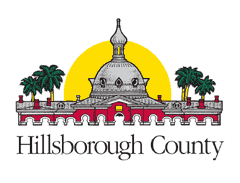 County commissioners, by a unanimous vote, approved an ordinance requiring lobbyists to register and pay a yearly $50 fee. Under the previous law, lobbyists simply had to sign a registry each time they appeared to lobby.
County commissioners, by a unanimous vote, approved an ordinance requiring lobbyists to register and pay a yearly $50 fee. Under the previous law, lobbyists simply had to sign a registry each time they appeared to lobby.
The new law requires the lobbyist to declare who they represent, what topics they will be discussing, and with whom they are meeting. The ordinance also increases the fines for violations and increases the time lobbying privileges are suspended for repeat offenders. The definition of lobbying is also expanded to include indirect communication through emails or text messages.
The county will hold training for lobbyists in August covering the changes.
January 21, 2016 •
Thursday News Roundup
Lobbying “Big Names Free to Lobby in 2016” by Megan Wilson for The Hill Nebraska: “Ernie Chambers Resolution Takes Aim at Free Meals Provided by Lobbyists” by Joe Duggan for Omaha World-Herald New Mexico: “New Mexico Lobbyist Spending Tops $818,000 […]
 Lobbying
Lobbying
“Big Names Free to Lobby in 2016” by Megan Wilson for The Hill
Nebraska: “Ernie Chambers Resolution Takes Aim at Free Meals Provided by Lobbyists” by Joe Duggan for Omaha World-Herald
New Mexico: “New Mexico Lobbyist Spending Tops $818,000 in 2015” by Sandra Fish for New Mexico In Depth
New York: “Friend Gave to de Blasio Just as Client Won Permit to Stage Festival” by Michael Grynbaum for New York Times
Campaign Finance
“President Obama May Require Federal Contractors to List Campaign Gifts” by Julie Hirschfeld Davis for New York Times
“High Court Rejects Challenge over Contractor Contributions” by The Associated Press for Philadelphia Inquirer
Ethics
South Carolina: “Bill Would Require South Carolina Journalists to Register” by Meg Kinnard (Associated Press) for Denver Post
Elections
“’90s Scandals Threaten to Erode Hillary Clinton’s Strength with Women” by Amy Chozick for New York Times
“Sarah Palin Endorses Donald Trump, Which Could Bolster Him in Iowa” by Alan Rappeport and Maggie Haberman for New York Times
Legislative Issues
West Virginia: “Court Offers Little Clarity in Arguments on Hall’s Senate Seat” by David Gutman for Charleston Gazette
January 20, 2016 •
Missouri Ethics Bill Moves through House Committee
Missouri House Bill 2166, just one of many ethics bills moving through the legislature, passed the Government Oversight and Accountability Committee on Tuesday and will be sent to the full House for further debate. The bill bans most lobbyist gifts […]
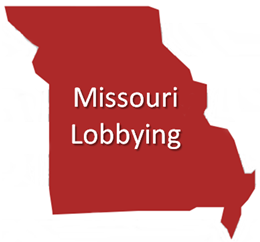 Missouri House Bill 2166, just one of many ethics bills moving through the legislature, passed the Government Oversight and Accountability Committee on Tuesday and will be sent to the full House for further debate. The bill bans most lobbyist gifts to state public officials and requires itemization of expenditures on lobbying reports for certain events unless all members of the legislature or all statewide elected officials are invited.
Missouri House Bill 2166, just one of many ethics bills moving through the legislature, passed the Government Oversight and Accountability Committee on Tuesday and will be sent to the full House for further debate. The bill bans most lobbyist gifts to state public officials and requires itemization of expenditures on lobbying reports for certain events unless all members of the legislature or all statewide elected officials are invited.
State Rep. Justin Alferman, the bill’s sponsor, says the proposal is designed to “alleviate some of the undue influence of lobbyists in Jefferson City.”
January 20, 2016 •
Nebraska Senator Seeks to End Lobbyist-Paid Lunches During Session
State Sen. Ernie Chambers introduced a resolution to prevent lobbyist-provided meals from influencing legislators. The resolution, Legislative Resolution 414, prohibits lobbyists from providing meals to legislators inside the Capitol while the legislature is in session. Last year, catering bills, paid […]
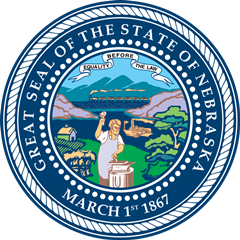 State Sen. Ernie Chambers introduced a resolution to prevent lobbyist-provided meals from influencing legislators. The resolution, Legislative Resolution 414, prohibits lobbyists from providing meals to legislators inside the Capitol while the legislature is in session. Last year, catering bills, paid for by lobbyists, exceeded $10,000.
State Sen. Ernie Chambers introduced a resolution to prevent lobbyist-provided meals from influencing legislators. The resolution, Legislative Resolution 414, prohibits lobbyists from providing meals to legislators inside the Capitol while the legislature is in session. Last year, catering bills, paid for by lobbyists, exceeded $10,000.
Nebraska law currently limits gifts from lobbyists at $50 per month to senators and their immediate families, but meals and beverages do not count toward the limit when the lobbyist is present at the event.
Defending the tradition of a serving line during the final weeks of the session, Speaker Galen Hadley dismisses the idea of food influencing how a senator votes. Sen. Chambers believes the practice creates the appearance of impropriety and should be ended.
January 20, 2016 •
Wednesday Government Relations News
Lobbying Florida: “Lobbyists Often Skirt the Rules but Are Rarely Punished in Hillsborough County” by Steve Contorno for Tampa Bay Times Missouri: “Lobbyist Gift Ban Heads to Full House for Vote” by Kurt Erickson for St. Louis Post-Dispatch Campaign Finance […]
 Lobbying
Lobbying
Florida: “Lobbyists Often Skirt the Rules but Are Rarely Punished in Hillsborough County” by Steve Contorno for Tampa Bay Times
Missouri: “Lobbyist Gift Ban Heads to Full House for Vote” by Kurt Erickson for St. Louis Post-Dispatch
Campaign Finance
“Case Could Widen Free-Speech Gap between Unions and Corporations” by Adam Liptak for New York Times
“Rep. Jolly Pitches Curb on Federal Lawmakers’ Fundraising” by Mike Salinero for Tampa Tribune
“The GOP Debates Have Become Like Super Bowl Parties for Top Donors” by Matea Gold for Washington Post
Pennsylvania: “Loopholes Exposed in Allentown’s New Anti-Pay-to-Play Law” by Emily Opilo for Allentown Morning Call
Virginia: “Lawmakers Go on Fundraising Frenzy before Session” by Alan Suderman (Associated Press) for Deseret News
Ethics
New Mexico: “Scandals Raise Profile of an Unpopular Idea among Lawmakers: An ethics commission” by Marjorie Childress for New Mexico In Depth
New York: “In Albany, Those Who Might Address Ethics Meet Rarely and Offer Less” by Vivian Yee for New York Times
Vermont: “Lawmakers Divided on Proposed Ethics Commission” by Bob Kinzel (Vermont Public Radio) for Rutland Herald
January 19, 2016 •
Florida Senate Advances Lobbyist Disclosure Changes
A bill seeking to increase lobbyist disclosure advanced in committee in the Florida state senate. Senate Bill 686, if passed, will require lobbyists to report on a monthly basis the bills and amendments they are attempting to influence. This would […]
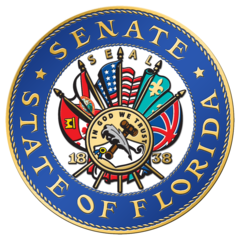 A bill seeking to increase lobbyist disclosure advanced in committee in the Florida state senate. Senate Bill 686, if passed, will require lobbyists to report on a monthly basis the bills and amendments they are attempting to influence. This would include listing the specific bar code the legislature uses to track amendments.
A bill seeking to increase lobbyist disclosure advanced in committee in the Florida state senate. Senate Bill 686, if passed, will require lobbyists to report on a monthly basis the bills and amendments they are attempting to influence. This would include listing the specific bar code the legislature uses to track amendments.
The bill still has several hurdles to clear before reaching the Senate floor, including three more committees.
January 19, 2016 •
New Lobby Legislation Filed in New Mexico
State Representative Jeff Steinborn has introduced three pieces of legislation aimed at lobbyist disclosure and transparency. Steinborn’s bills would require employers of lobbyists to file biannual reports disclosing all funding spent to lobby the state government; would require lobbyists to […]
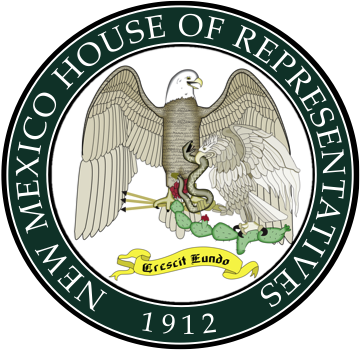 State Representative Jeff Steinborn has introduced three pieces of legislation aimed at lobbyist disclosure and transparency. Steinborn’s bills would require employers of lobbyists to file biannual reports disclosing all funding spent to lobby the state government; would require lobbyists to disclose specific pieces of legislation and administrative issues they are hired to work on; and would require lobbyists to specifically list each legislator who receives a gift, meal, or other expenditure from them.
State Representative Jeff Steinborn has introduced three pieces of legislation aimed at lobbyist disclosure and transparency. Steinborn’s bills would require employers of lobbyists to file biannual reports disclosing all funding spent to lobby the state government; would require lobbyists to disclose specific pieces of legislation and administrative issues they are hired to work on; and would require lobbyists to specifically list each legislator who receives a gift, meal, or other expenditure from them.
Steinborn has been successful with lobbyist legislation in the past, having passed a bill requiring the Secretary of State to publish lobbyist spending online in a searchable and downloadable format.
January 19, 2016 •
Tuesday Lobbying and Campaign Finance News Update
Lobbying “East Side of California Capitol Will Become Staff, Lobbyist Entrance” by Alexei Koseff for Sacramento Bee Campaign Finance “Super PACs Get Free Pass to Hide Donors” by Dave Levinthal for Center for Public Integrity Florida: “Special Interests Flood Florida […]
 Lobbying
Lobbying
“East Side of California Capitol Will Become Staff, Lobbyist Entrance” by Alexei Koseff for Sacramento Bee
Campaign Finance
“Super PACs Get Free Pass to Hide Donors” by Dave Levinthal for Center for Public Integrity
Florida: “Special Interests Flood Florida Legislative Campaigns with $28 Million in 6 Months” by Mary Ellen Klas for Miami Herald
New Jersey: “Critics Allege Pay-to-Play Violation after Fulop Donor’s Firm Gets Contract” by Terrence McDonald (Jersey Journal) for Newark Star-Ledger
New York: “State Street Settles Pay-to-Play Charges for $12 Million” by Liz Moyer for New York Times
Pennsylvania: “Lawyer: Former Allentown official lied to FBI out of panic and loyalty, but soon returned to confess” by Peter Hall and Emily Opilo for Allentown Morning Call
Ethics
Arizona: “State Drops Criminal Probe of Ex-Utility Regulator” by Howard Fischer (Capitol News Services) for Arizona Daily Star
California: “Informant in FBI Bribery Case was Huntington Park Councilman” by Ruben Vives and Joel Rubin for Los Angeles Times
Massachusetts: “Governor Baker Calls for an Ethics Investigation of Milton Sen. Brian Joyce” by Michael Norton and Matt Murphy (State House News Service) for Quincy Patriot-Ledger
South Carolina: “Appeals Court Upholds Jury Award in The Sun News Defamation Case” by Chrarles Perry for Myrtle Beach Sun News
January 18, 2016 •
Washington AG Recommends Revolving Door Legislation
Attorney General Bob Ferguson has recommended legislation prohibiting state officials and employees from becoming lobbyists for one year after leaving office. This is his second attempt to address his state’s revolving door. The bill is being considered in committee. Photo of […]
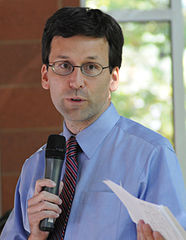 Attorney General Bob Ferguson has recommended legislation prohibiting state officials and employees from becoming lobbyists for one year after leaving office.
Attorney General Bob Ferguson has recommended legislation prohibiting state officials and employees from becoming lobbyists for one year after leaving office.
This is his second attempt to address his state’s revolving door. The bill is being considered in committee.
Photo of Attorney General Bob Ferguson by Joe Mabel on Wikimedia Commons.
January 18, 2016 •
Monday News Roundup
Lobbying Missouri: “Senate Panel Eyes Lobbyist Gift Ban in Missouri” by Kurt Erickson for St. Louis Post-Dispatch Campaign Finance “Ted Cruz Didn’t Disclose Loan from Goldman Sachs for His First Senate Campaign” by Mike McIntire for New York Times California: […]
 Lobbying
Lobbying
Missouri: “Senate Panel Eyes Lobbyist Gift Ban in Missouri” by Kurt Erickson for St. Louis Post-Dispatch
Campaign Finance
“Ted Cruz Didn’t Disclose Loan from Goldman Sachs for His First Senate Campaign” by Mike McIntire for New York Times
California: “San Jose Ethics Commission Drops Charges against 20 Candidates” by Ramona Giwargis for San Jose Mercury News
Ethics
Illinois: “Central Figure in Chicago’s Red-Light Camera Bribery Scandal Goes on Trial” by David Kidwell for Chicago Tribune
New York: “Buffeted by Lawmaker Scandals, Cuomo Unveils latest Ethics Reforms” by Ashley Hupfl and John Lentz for City & State
Elections
“The Republican Party’s 50-State Solution” by Thomas Edsall for New York Times
“An Election with the Shape of American Democracy in the Balance” by Lawrence Norden for The Atlantic
January 15, 2016 •
News You Can Use Digest – January 15, 2016
National: Groups Decrying ‘Dark Money’ Use Shadowy Money Themselves Center for Public Integrity – Liz Essley Whyte | Published: 1/14/2016 A number of groups that advocate against anonymous donations in politics are themselves responsible for putting money into elections that cannot […]

National:
Groups Decrying ‘Dark Money’ Use Shadowy Money Themselves
Center for Public Integrity – Liz Essley Whyte | Published: 1/14/2016
A number of groups that advocate against anonymous donations in politics are themselves responsible for putting money into elections that cannot be traced, often hidden under layers of opaque networks. The organizations either gave to ballot measure campaigns, paid for messages about candidates, or gave to PACs. But many of the groups identified by the Center for Public Integrity said they already exceed what the law requires by disclosing at least some of their donors. Some relied on an argument that opponents of disclosure raise regularly: their donors could face hostility or mistreatment if the public knew the donors’ identities.
State Legislatures Tweak Lobbying Rules as Influence Industry Targets Their Capitols
Washington Post – Catherine Ho | Published: 1/7/2016
Legislatures around the country are enacting new rules to regulate lobbying. Many focus on disclosure as states seek to better define who lobbyists are and what they are allowed to do. The new rules are not expected to dramatically change the lobbying landscape in any of the states, but they do signify a movement by governments to tweak, improve, and clarify rules for lobbyists at a time that many hotly contested lobbying fights, such as those over gun laws, are progressing more quickly in state capitals than they are in Congress.
Federal:
Carson Campaign in Turmoil as Finance Chair Quits
Politico – Kyle Cheney | Published: 1/14/2016
Ben Carson’s presidential campaign was shaken by another high-profile resignation, with finance Chairperson Dean Parker leaving amid scrutiny over his grip on the campaign’s fundraising operation and the perception he has benefited improperly from campaign spending. From chartered flights to investments in ineffective paper mailers in early voting states, decisions made by staff have raised questions in recent months about whether the campaign is spending its money wisely. The resignation comes after it was reported that Parker was paying himself a salary of $20,000 per month, which is unusually high for such a position.
From the States and Municipalities:
Florida – Miami Beach Commissioners Unanimously Pass Stricter Campaign Finance Laws
Miami Herald – Joey Flechas | Published: 1/13/2016
Miami Beach commissioners approved more stringent campaign finance laws after last year’s controversy about the role of special-interest money in local politics. Commissioners and candidates will no longer be able to solicit PAC contributions from lobbyists and vendors who have city contracts. The law also prohibits indirect solicitations, such as a third party asking lobbyists and vendors on behalf of candidates and elected officials.
Florida – Perry Violated Ethics Laws in Lobbying Scott on Medicaid Dental Provider
PoliticoFlorida – Marc Caputo | Published: 1/14/2016
Though Florida law says “a person may not lobby an agency [of state government] until such person has registered as a lobbyist,” Rick Perry did not do that when he met with Gov. Rick Scott, a top staffer, and the head of the Agency for Health Care Administration. The meeting was left off of Scott’s official daily schedule, which was updated hours later after a reporter inquired about it. It took Perry a few more hours to register as a lobbyist for MCNA Dental as questions were raised about whether he was following the law. The meeting was set up by Southern Strategy Group, a lobbying firm that represents MCNA Dental, to discuss legislation that would eliminate dental services from the list of health care services that managed care plans are required to offer beneficiaries.
Maine – Maine Governor Blames Media for Racially Charged Language Dust-Up
CNN – Gregory Krieg | Published: 1/8/2016
Maine Gov. Paul LePage apologized for his remark about out-of-state drug dealers impregnating “young white” girls, calling it a slip of the tongue and saying he did not mean to inject race into discussion of Maine’s heroin epidemic. LePage blamed reporters for unfairly focusing on the slip-up in which he described the drug dealers as “guys with the name D-Money, Smoothie, Shifty” and added, “Half the time they impregnate a young white girl before they leave.”
Massachusetts – Dispute Over State Senator’s Dirty Laundry Raises Questions
Boston Globe – Andrea Estes | Published: 1/12/2016
The former owner of Woodlawn Cleaners said Massachusetts Sen. Brian Joyce received tens of thousands of dollars in free dry cleaning services over the course of a decade. Jerry Richman said he offered to clean Joyce’s clothes for free when Joyce was running for state Senate in 1997, but there was no formal or written agreement. Joyce’s attorneys say the free dry cleaning was in exchange for legal services provided by the Joyce over the years. Ethics experts said public officials in Massachusetts should not accept any services worth more than $50. Even if he traded legal services for the dry cleaning, he would have to keep records to show he did not receive a net benefit of $50 or more. Joyce has acknowledged there is no written record of the dry-cleaning-for-legal services arrangement and he cannot remember when it began.
Massachusetts – Walsh Reverses Course, to Back Lobbying Rules
Boston Globe – Andrew Ryan and Mark Arsenault | Published: 1/9/2016
Boston Mayor Martin Walsh said he will propose regulations for municipal lobbyists that could for the first time require public disclosure of their efforts to influence development, contracts, and permits. Walsh’s announcement comes after The Boston Globe reported how a childhood friend and former law partner of the city’s top lawyer leveraged his personal relationships for introductions and access to key administration officials. Walsh said the reform will be modeled on state lobbying laws, which require lobbyists to disclose their clients, the matters on which they are lobbying, and their compensation.
Missouri – House Approves Ethics Package Including Rowden Proposal Limiting Lobbying
Columbia Tribune – Rudi Keller | Published: 1/14/2016
The Missouri House passed four ethics bills despite objections that the bills were too weak and too narrowly drafted. The package limits officials’ ability to lobby after leaving office, ban work as a political consultant while in office, and require more frequent reporting of personal finance and out-of-state trips. Under one bill, lawmakers and statewide officials elected this year and appointed officials confirmed by the Senate would have to wait one year after leaving office before working as a lobbyist. Officials who leave office before the end of their term would have to wait until the end of the term before the one-year waiting period begins. Another bill would require a report within one month when an official accepts a trip paid by a third party.
Montana – New Campaign Finance Rules Take Effect in Montana
Billings Gazette; Associated Press – | Published: 1/8/2016
New campaign finance rules took effect in Montana recently. The regulations for a law passed last year aim to make campaigns more transparent after the Citizens United decision that allowed corporations and unions to spend unlimited amounts of money in elections. That ruling has given rise to independent expenditures made by social welfare groups that do not report their donors or spending. Now, groups registered as social welfare or issue advocacy organizations will have to make those disclosures if they produce advertisements or other electioneering communications that mention an election or a candidate, or use a candidate’s image.
New York – New York’s Ethics Rule Could Infringe on Free Speech, Experts Say
Crain’s New York Business – Rosa Goldensohn | Published: 1/13/2016
The Joint Commission on Public Ethics updated an advisory opinion to say that communication between public relations consultants and the press on public policy should count as lobbying. If a consultant has input into the content of such a message and helps to deliver it, that consultant would apparently be a lobbyist under the new rules. The advisory opinion also includes provisions that would require consultants who connect clients with lawmakers to register as lobbyists.
Pennsylvania – City Campaign Finance Limits Increased
Philadelphia Inquirer – Claudia Vargas | Published: 1/11/2016
The Philadelphia Board of Ethics announced that campaign contribution limits have increased for the next four years. Candidates for city office may now accept up to $3,000 from an individual contributor per calendar year, up from the previous $2,900 limit. They may also accept up to $11,900 from groups or businesses, up from the prior $11,500 cap.
Pennsylvania – Struggling Philadelphia Inquirer Is Donated to Nonprofit in Groundbreaking Deal
Washington Post – Fred Barbash | Published: 1/12/2016
H.F. Lenfest, the owner of The Philadelphia Inquirer, The Philadelphia Daily News, and Philly.com, announced he had donated the publications to a newly formed nonprofit journalism institute. The publications will continue to run independently. The new ownership structure comes as daily newspapers contend with falling circulation and dwindling advertising dollars, and many have sought new business models and new revenue sources to combat the decline. “My goal is to ensure that the journalism traditionally provided by the printed newspapers is given a new life and prolonged, while new media formats for its distribution are being developed,” said Lenfest.
West Virginia – Proposed Changes to State Ethics Act Divide Lawmakers
Charleston Gazette – Phil Kabler | Published: 1/11/2016
West Virginia lawmakers on the joint House and Senate Judiciary Committee were divided on two ethics reform bills. That included proposed legislation that would ban registered lobbyists from contributing to campaigns for statewide elected officials or for legislators, with some lawmakers concerned about loopholes in the proposal. Several noted the bill would ban lobbyists and their spouses from making campaign contributions, but does not prohibit the lobbyists’ employers from contributing, or bar lobbyists from hosting fundraisers.
Wisconsin – Elections Board Says Parties Must Report Corporate Donations
Milwaukee Journal-Sentinel – Patrick Marley | Published: 1/12/2016
The Government Accountability Board (GAB) shifted from its stance that Wisconsin’s new campaign finance laws do not require political parties and legislative campaign committees to disclose contributions from corporations. The board unanimously adopted a motion requiring the parties and committees to report such contributions as well as how they spend the money. GAB Director Kevin Kennedy said board staff incorrectly told people the law did not mandate such disclosures. A section of the new law allows corporations to donate up to $12,000 to political parties and campaign committees controlled by legislative leaders. The parties and the committees are limited to spending that money on administrative expenses. They cannot spend the money on expressly advocating for a candidate or pass it on to a candidate.
 State and Federal Communications produces a weekly summary of national news, offering more than 60 articles per week focused on ethics, lobbying, and campaign finance.
State and Federal Communications produces a weekly summary of national news, offering more than 60 articles per week focused on ethics, lobbying, and campaign finance.
State and Federal Communications, Inc. provides research and consulting services for government relations professionals on lobbying laws, procurement lobbying laws, political contribution laws in the United States and Canada. Learn more by visiting stateandfed.com.

